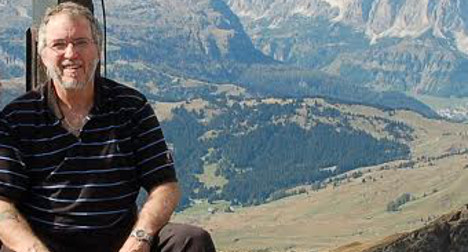So what brought you to Italy and what did you do for work initially?
I took a year off from painting houses in San Francisco to see Europe, ski, climb, and generally get into trouble in 1985. I liked it so much I'm still here. I initially sold cars to US soldiers for Munich Ford Dealer and between 1988 and 1995 and set up and operated sales offices as a dealer for Ford to US bases in Italy. Then I jumped into real estate for a while, which is a more complicated business to be in here than anywhere else, before setting up a consultancy in the export sector.
You now run FORTI RADICI, an export consultancy, from the Veneto region. Please tell us a bit about that.
The consultancy helps Italian, European and US companies market their products to US government bases overseas – so our core business is to help those companies pursue, win and manage contracts with governments in Europe, Africa and the Middle East.
Since starting in 2009, our network has spread so that we are now connected throughout the European, African and Middle East regions and can get things done quickly and efficiently in complicated markets and situations.
We've helped win contracts as diverse as supplying Italian fruit and vegetables to all NATO bases and ships in southern Europe, petroleum to Sardinia and vehicles to US Embassies throughout Africa. We identify a need, find the right firm and then do what's necessary to win contracts.
What made you decide to go it alone?
I always have, since selling newspapers on the boardwalk in Atlantic City 50 years ago.
Did you face many challenges in terms of setting up and doing business in Italy?
Initially, no. By working within the US Status of Forces Agreement (as a Ford dealer to NATO bases in Italy), I was protected. But later on, in my real estate business, I was often paid visits by the 'fisco' (tax collector) – sent by competitors.
Setting up a small business in Italy requires unique knowledge and experience, something that must be acquired the hard way. You need to put in the time, take the hits and learn from mistakes.
Italian exports to countries outside of the EU seem to be holding the economy up. Which products are most in demand.
Italian food is hugely in demand from other countries. Apart from that, imagination and collaboration – I find more of that in Emilia-Romagna than in other areas (for example, the Veneto, where I live), which seem to rely too much on old mechanisms and nepotism.
How would you assess today's business climate in Italy, particularly for foreigners looking to set up here?
Good if you can bring persistence and commercial knowledge, language and computer skills to the party. Otherwise, make sure you have a return ticket.
As a businessman in Italy, what are the main challenges facing business people today?
Finding a field that has a future of more income than outgoings. You also need to have the right business consultant, tax consultant and lawyer.
A recession can also bring about opportunities…do you think this is the case for Italy?
Well, the future is bright for debt collectors.
What can Italy do to attract more entrepreneurs and help those who are already in business?
It's a lost cause. One needs to accept the fact that most civil servants are only concerned about how much they can make, looking good and doing as little as possible (hopefully, also doing as little harm as possible).
What would you advise other foreigners looking to set up here?
Either come with a little money and a lot of drive, and take the 'sink or swim approach', or start with a job teaching English, which is always in demand.
Don't miss a story about Italy – Join us on Facebook and Twitter.



 Please whitelist us to continue reading.
Please whitelist us to continue reading.
Member comments